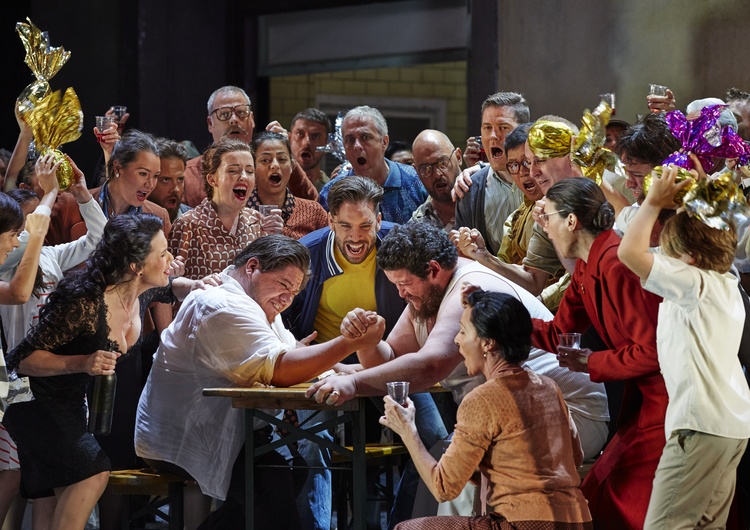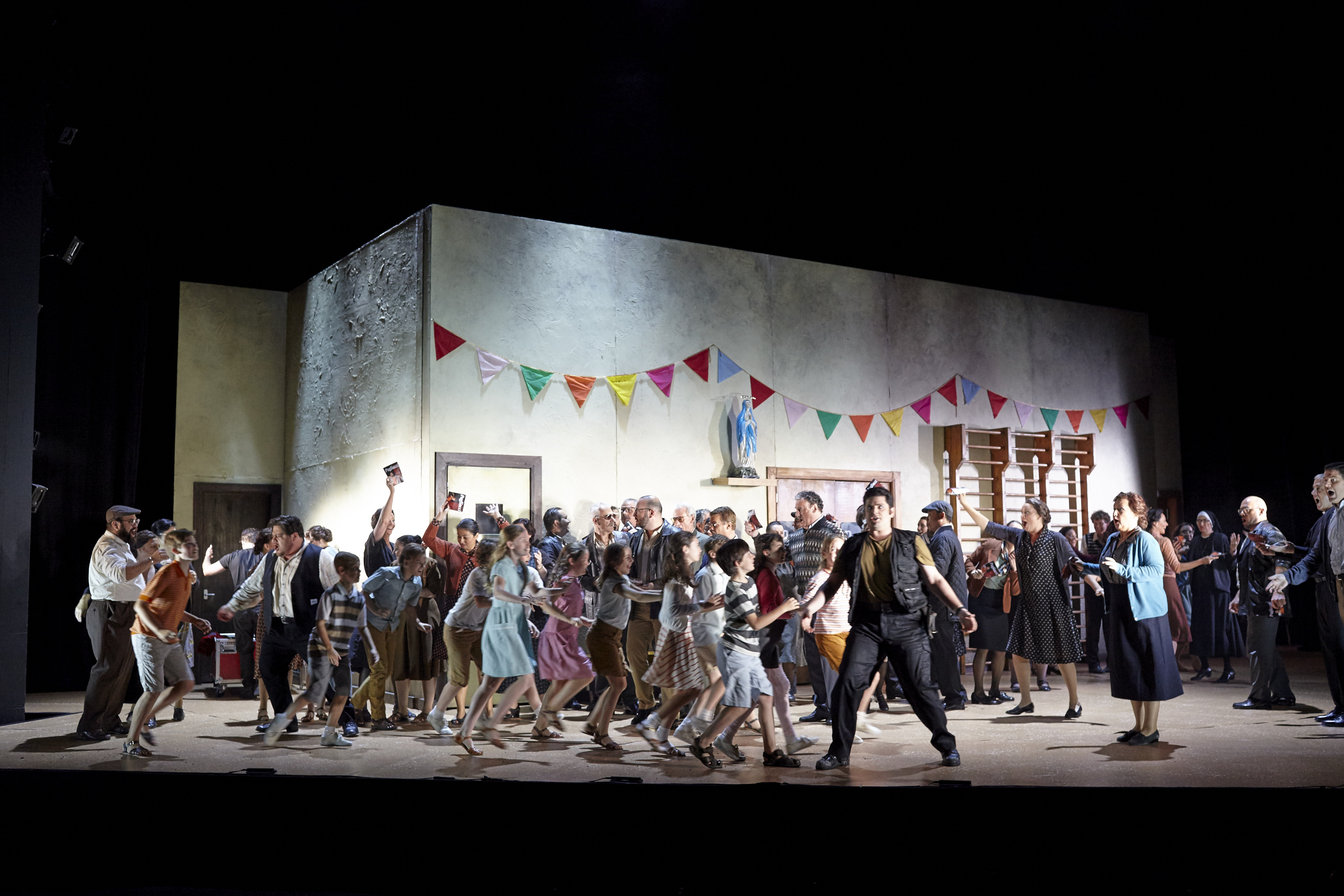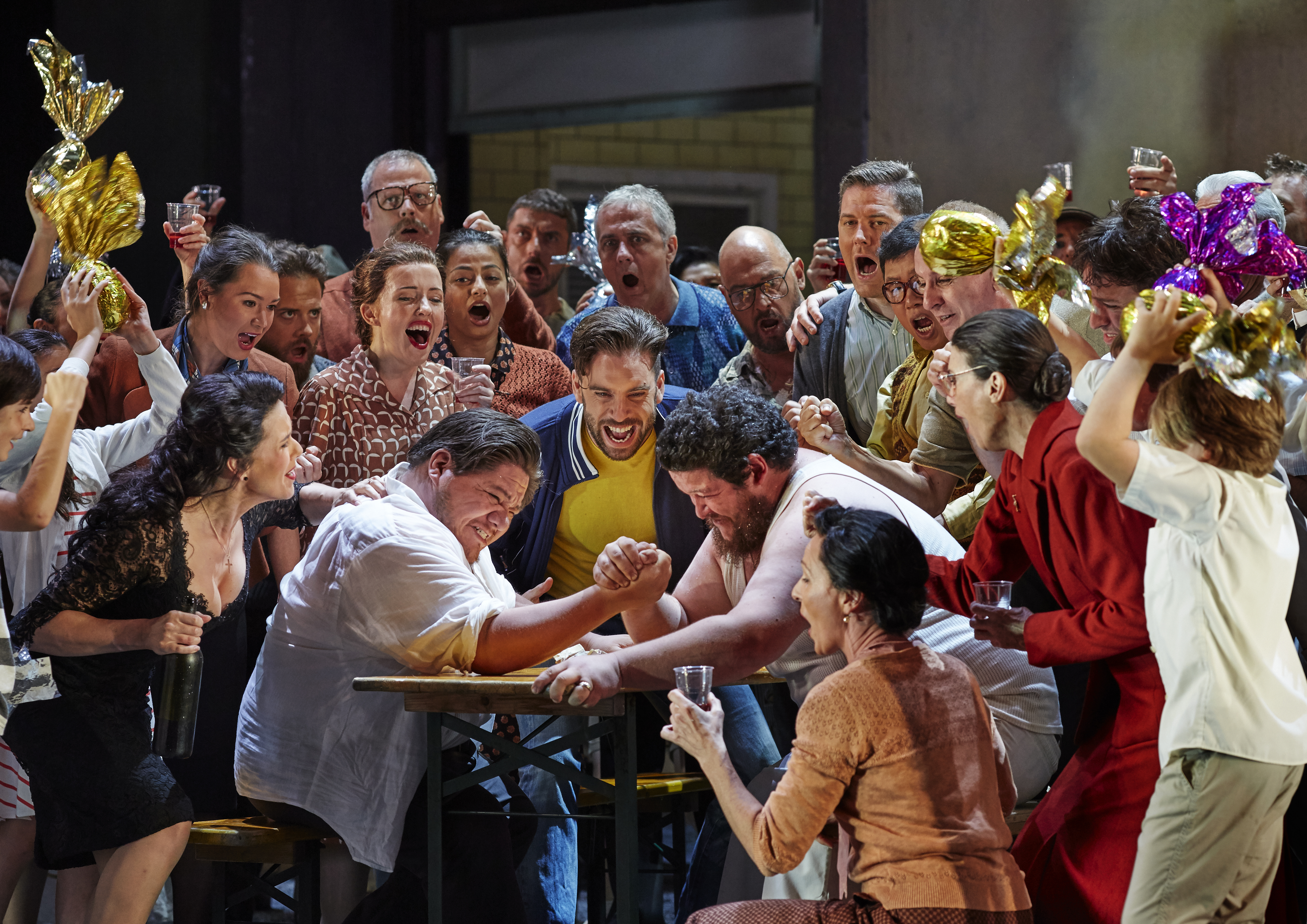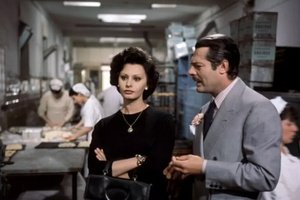This week, Opera Australia will breathe life into a classic combination: Pietro Mascagni’s La Cavalleria Rusticana and Ruggero Leoncavallo’s Pagliacci.
The Olivier Award-winning co-production with the Royal Opera House explores the broad spectrum of emotions innate in all human begins, from love to jealousy, anguish and rage.
Featuring a stellar cast, the production is the fruit of Damiano Michieletto’s ingenuity.
Though the Italian director has raised eyebrows with controversial staging choices in the past, his masterful version of ‘Cav and Pag’, as they’re fondly referred to, has received glowing reviews across the world.
The production features another internationally revered Italian, Andrea Licata.
Hailing from Sicily, Mr Licata has conducted myriad orchestras across his motherland and abroad, including the Royal Philharmonic Orchestra and the Melbourne Symphony Orchestra, and was musical director at the Teatro Massimo Vincenzo Bellini in Catania, where he conducted concerts and operas from 1991 to 1994.
Mr Licata made his Australian debut in 2003, conducting a new production of Norma for Opera Australia in Melbourne.
The show was a great success and the esteemed conductor has since been invited back to our shores regularly, spending several months a year between Melbourne and Sydney for work.
“When I came here in 2003, I thought it would be the first and last time, but I’m glad to say I was wrong,” he explained.
“The people here are extraordinary and I love the hospitality.”
Mr Licata knows ‘Cav and Pag’ like the back of his hand, and explains that the two nineteenth-century operas work so well together because of similar lengths – around one hour – and the fact that both speak to the theme of jealousy and give an insight into the lives of ordinary, working class people.
The two operas first appeared together in 1893 in Italy and New York, proving to be a match made in heaven.
Traditionally set in the village of Vizzini, La Cavalleria Rusticana was inspired by a short story written by Giovanni Verga, a great Sicilian wordsmith whom Mr Licata describes as “the father of Italian verismo”.
Mascagni fell in love with the story and wrote music on top of it, giving life to his most recognised work.
On the other hand, set in Calabria, Pagliacci is based on a true story inspired by a murder which occurred during Leoncavallo’s childhood and for which his father was the presiding magistrate.
While both operas are set in southern Italy, Michieletto has cleverly interwoven them by setting them in the same small village and introducing characters from one opera into the other.
“It’s as though the characters are taking part in the same opera,” Mr Licata exclaimed.
Michieletto also chose to update the setting to the 1980s, adding a more modern slant to the production.
“It’s something he has done with great intelligence,” Mr Licata said.
There was one thing the great conductor wasn’t too sure about, however: the use of an Alfa Romeo in Pagliacci instead of the traditional horse and cart.
“It’s not that I’m a traditionalist, but I must say it took me by surprise,” he laughed.
“However, the rest of the production was done in a very traditional manner, and it’s a truly beautiful show.
“The singers are extraordinary and I think that these days, it’s very rare to find such a talented cast.”
Having possessed a passion for music for as long as he can remember, learning to play the violin at five years of age, Mr Licata still hopes that each performance is better than the last – and this time is no different.
“I hope to connect with the audience and evoke the same emotions that I feel when I direct this opera,” he reflected.
“Passion, love, jealousy – all of the human emotions.”













